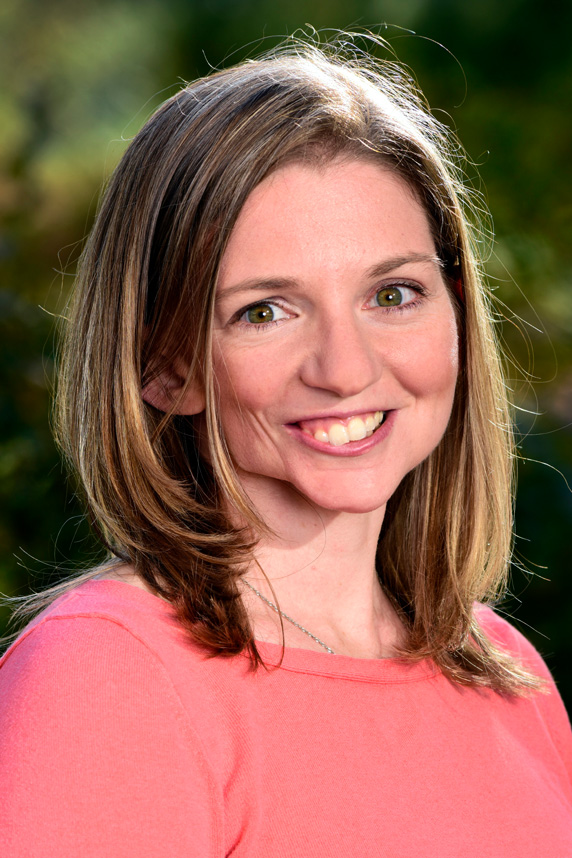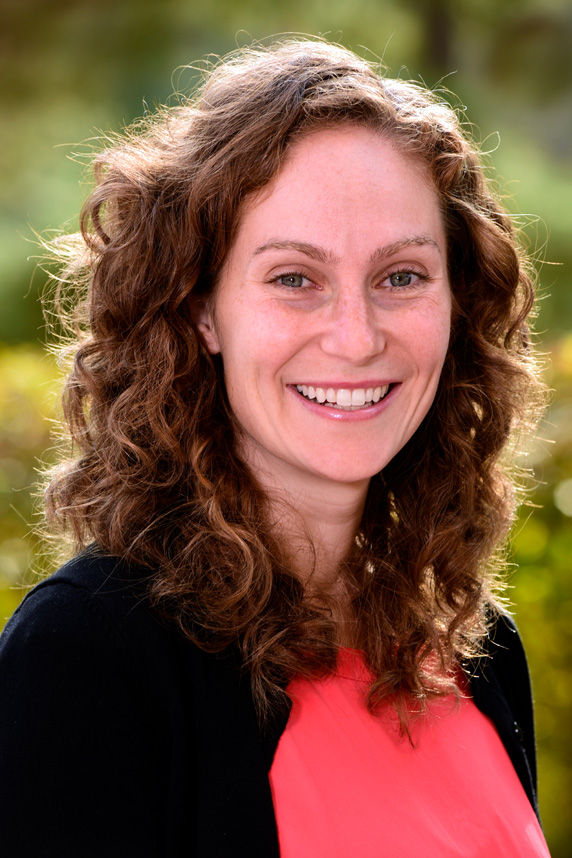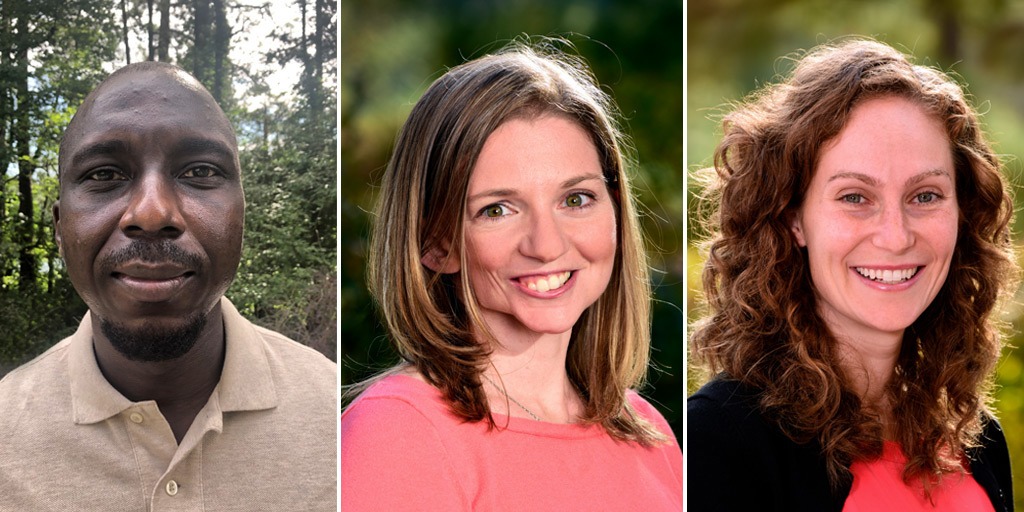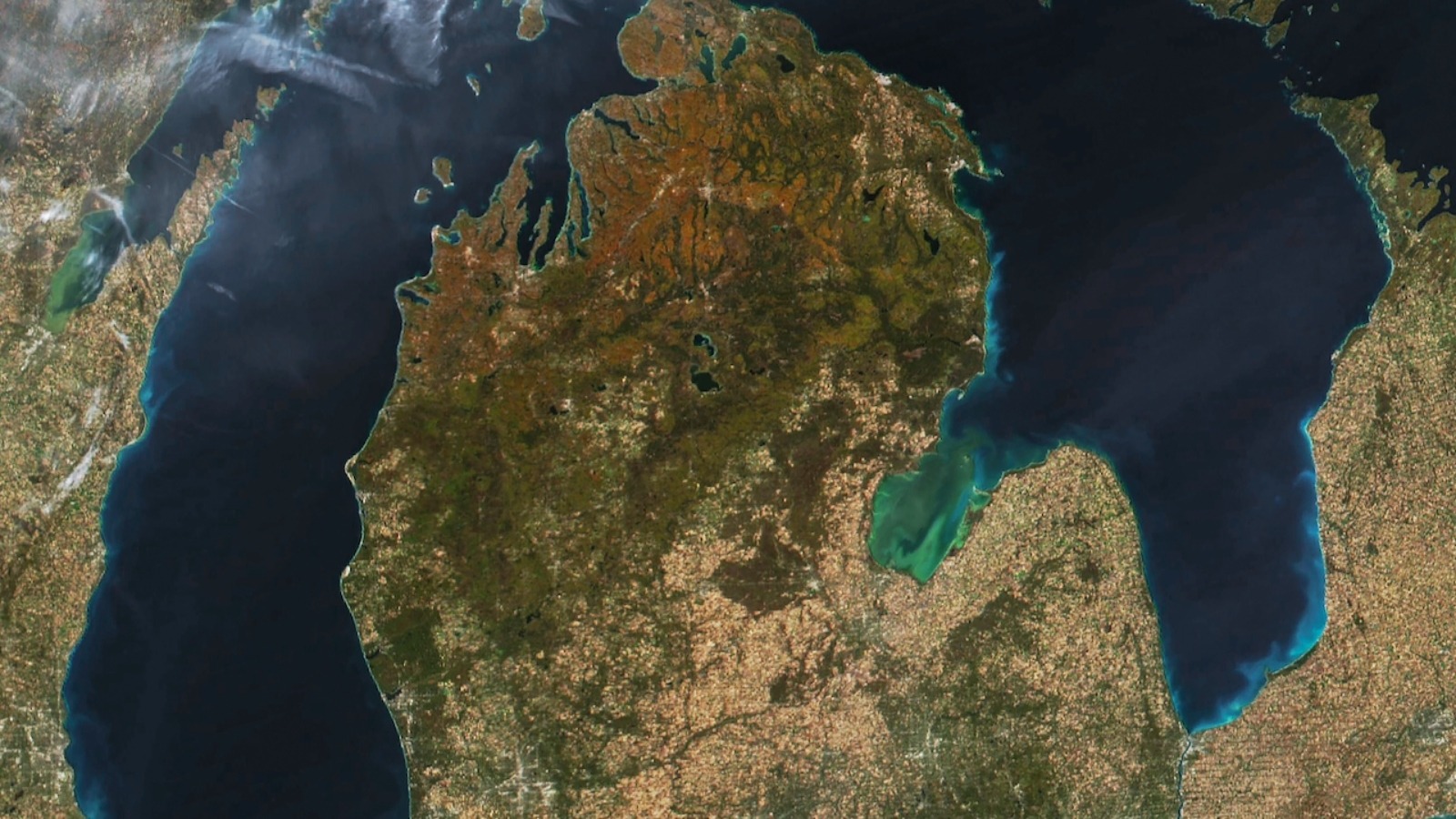Three early-career NIEHS scientists who study, respectively, how diet can influence disease, the role of faulty RNA processing in a rare disorder, and links between air pollution and neurological dysfunction were recognized for their outstanding achievements and leadership potential during the Sept. 13 meeting of the National Advisory Environmental Health Sciences Council.
Training Africa’s next generation of scientists
Temitope Adedeji, Ph.D., a visiting fellow in the NIEHS Eukaryotic Transcriptional Regulation Group, led by Paul Wade, Ph.D., is the first-ever institute recipient of the Emerging Global Leader Award from the National Institutes of Health (NIH) Fogarty International Center. The award helps to support young scientists from low- or middle-income countries.
“It will enable me to dedicate time to my research career rather than administrative and teaching duties,” said Adedeji. “I intend to use the funding to start a laboratory in Nigeria, at the Federal University of Technology, Akure. My goal is to set up a program that provides long-term career and training opportunities for promising young scientists across Africa,” he added.
“Growing up in Africa gave me firsthand insight into the problems and challenges that young people there must surmount to succeed at anything,” Adedeji said. “My one passion is to make it easier for them to dream big and actualize their ambitions.”
At NIIEHS, Adedeji studies how a low carbohydrate, high-fat diet can result in epigenetic changes that potentially lead to conditions such as colorectal cancer and metabolic disease. Epigenetic changes are modifications to DNA that alter gene expression but not the genetic code.
Adedeji credits his time in Wade’s lab for helping him develop research and leadership skills.
“Dr. Wade’s mentorship style and the collegial atmosphere he created are definitely things I want to replicate in Nigeria,” he said.
Tackling a rare disorder
 At NIEHS, Hayne has embraced her trainee experience. She founded the Fellow’s Scientific Grant Peer Review Group and mentors students in the institute’s Scholars Connect Program. (Photo courtesy of Steve McCaw / NIEHS)
At NIEHS, Hayne has embraced her trainee experience. She founded the Fellow’s Scientific Grant Peer Review Group and mentors students in the institute’s Scholars Connect Program. (Photo courtesy of Steve McCaw / NIEHS)Cassandra Hayne, Ph.D., an Intramural Research Training Award (IRTA) fellow in the NIEHS Nucleolar Integrity Group, led by Robin Stanley, Ph.D., recently won the NIH Maximizing Opportunities for Scientific and Academic Independent Careers (MOSAIC) award. The grant helps young scientists from diverse backgrounds, or who have a strong record of aiding researchers from those backgrounds, transition to tenure-track or equivalent positions.
Through her award, Hayne will study pontocerebellar hypoplasia (PCH), a severe neurological disorder marked by early-life development of an abnormally small cerebellum and brain stem, for which there is no cure. She will examine several nucleases linked to the disease to understand how mutations can affect the proteins’ function and lead to PCH.
Hayne said that her enthusiasm about this project goes beyond her innate scientific curiosity.
“I first got involved with research because I had cancer when I was toddler,” she explained.
“My experience as a cancer survivor made me want to advance biomedical research and therapies that reduce the burden of disease on children,” said Hayne. “I hope to use my research strengths and skills developed in Dr. Stanley’s lab to shed light on some of the proteins associated with PCH, both to understand the basic biology of how they work and why changing a single amino acid can pave the way for this disease.”
All about communication
 “As an environmental epidemiologist, I work to understand how specific contaminants in air affect neurologic health among different populations,” explained Werder. (Photo courtesy of Steve McCaw / NIEHS)
“As an environmental epidemiologist, I work to understand how specific contaminants in air affect neurologic health among different populations,” explained Werder. (Photo courtesy of Steve McCaw / NIEHS)Emily Werder, Ph.D., an IRTA fellow in the Chronic Disease Epidemiology Group, led by Dale Sandler, Ph.D., was recently accepted into the Science Communication Network’s competitive Science Communication Fellowship Program. The nine-month experience helps early-career scientists boost the impact of their research by improving their ability to share findings with journalists, other scientists, and the public.
“My overarching research goal is to better understand the relationship between air pollution and the nervous system across the lifespan,” said Werder. “The fundamental value of this work rests on its potential to persuade constituencies and stakeholders, influence policy, reduce air pollution exposure levels, and ultimately improve population health. Through this fellowship program, I hope to develop skills that will democratize the results of my research.”
Werder said that under the mentorship of Sandler, she has studied relationships between air pollutants and neurologic outcomes as part of the Gulf Long-term Follow-up Study (GuLF Study).
“The 2010 Deepwater Horizon oil spill in the Gulf of Mexico raised awareness of the potential for health effects associated with spill-related chemicals,” said Werder. “My work leverages the GuLF Study to evaluate whether ambient chemical exposures, both related and unrelated to the oil spill, affect neurologic health. Specifically, I assess relationships between hydrocarbons, volatile organic compounds, metals, and criteria air pollutants and neurologic endpoints,” she noted.
“I hope to take advantage of my science communication fellowship and learn to communicate my results more responsibly, effectively, and comfortably with scientists and non-scientists.”
(Tara Ann Cartwright, Ph.D., is a technical writer-editor in the NIEHS Office of Communications and Public Liaison.)
Source link
factor.niehs.nih.gov


